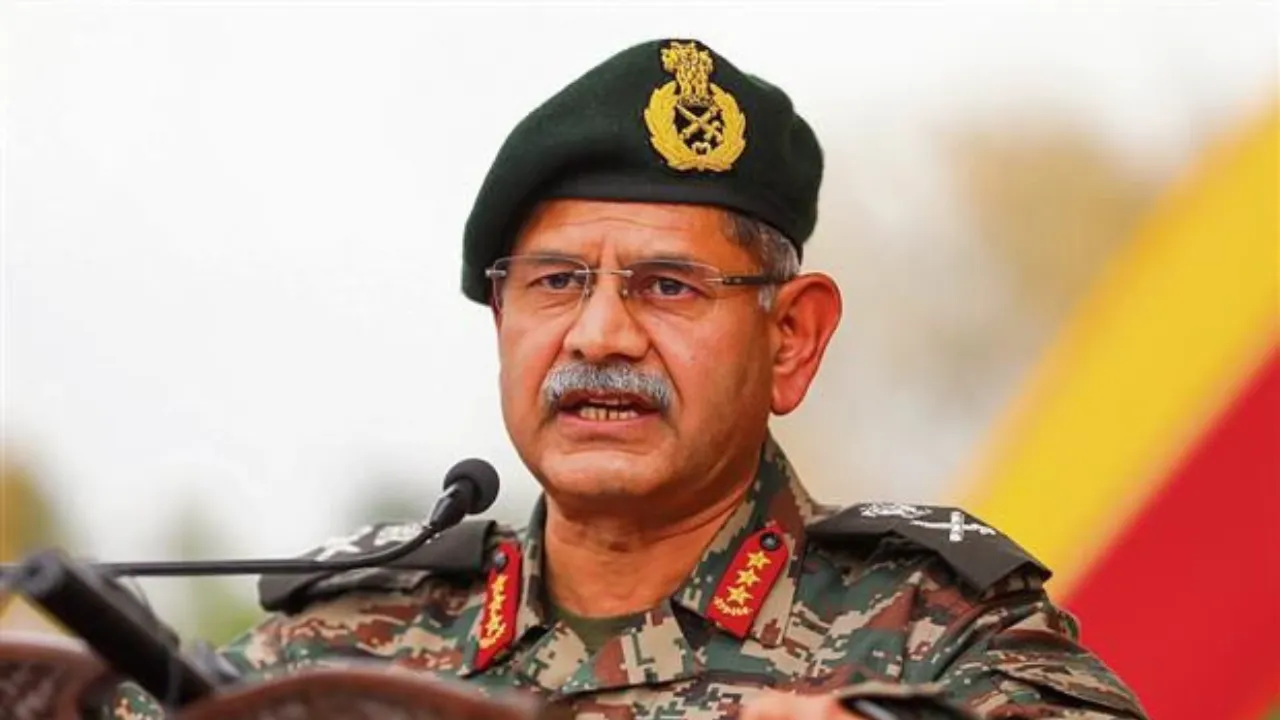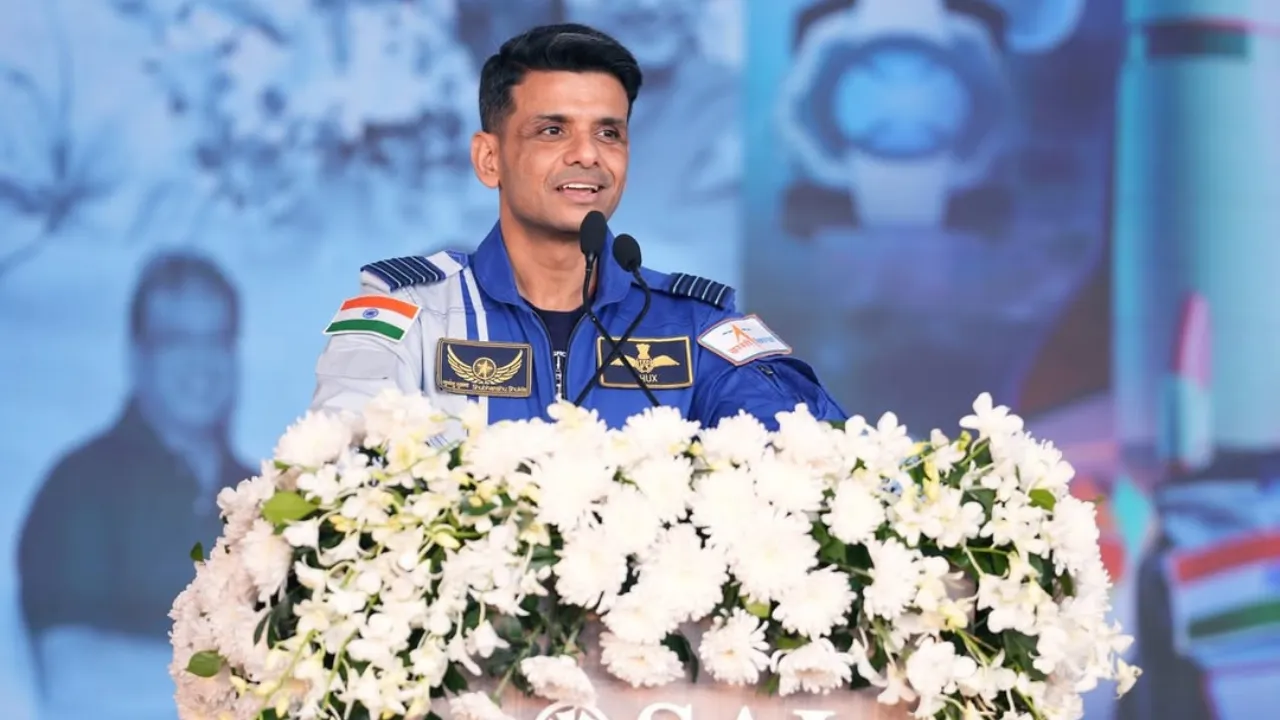Army chief General Upendra Dwivedi warns Pakistan: ‘If you want to remain on world map…’
When the Chief of Army Staff speaks in unmistakable terms, it’s not just a headline — it’s a strategic signal. Army chief Upendra Dwivedi recently issued a stark warning to Pakistan, saying Islamabad must stop sponsoring terrorism “if it wants to remain on the world map.” The statement underlines a tighter Indian posture after recent cross-border tensions and follows public discussion around Operation Sindoor.
This article breaks down what Upendra Dwivedi said, why it matters, the background context (including Operation Sindoor), and the likely diplomatic and defence implications for the region.
What exactly did Upendra Dwivedi say?
The core message — stop state-sponsored terrorism or face consequences
Speaking to troops in Rajasthan’s border areas, Upendra Dwivedi warned that Pakistan must end its support for terrorist groups if it wants to retain its place on the global map. He emphasized India’s preparedness and explicitly stated that the restraint India exercised during Operation Sindoor 1.0 would not necessarily be repeated next time.
Tone and intent — deterrence, not fiery rhetoric for its own sake
The tone of the remarks was deliberately forceful: military leaders often use strong wording to send a deterrent signal. Upendra Dwivedi coupled the warning with calls for soldiers to remain prepared, indicating this was aimed both outward (to Pakistan and international audiences) and inward (to boost troop readiness).
The context — what is Operation Sindoor and why is it referenced?
Operation Sindoor in brief
Operation Sindoor refers to a recent Indian military campaign that involved targeted cross-border action against terror infrastructure. Indian officials said the operation exposed terrorist hideouts and networks across the border, and New Delhi shared evidence with the international community. Upendra Dwivedi’s reference to Sindoor signals that India believes it acted with measured restraint the last time but may adopt a tougher posture in the future.
Why invoking Sindoor raises the stakes
Mentioning Operation Sindoor does two things. First, it reminds observers that India has operational reach and credible evidence of cross-border terrorism. Second, by saying “we did not show restraint then” (or that previous restraint will not be repeated), the Army chief raises the perceived cost of continued provocations for Pakistan. That escalatory framing is intended to deter further state-sponsored aggression.
Immediate reactions and media coverage
Multiple national outlets covered Upendra Dwivedi’s remarks within hours, highlighting the international dimension of his warning and the location of the remarks (Anupgarh, Rajasthan). Major Indian news organisations report the same core quote and underscore that the message was delivered during a visit to forward areas, amplifying its seriousness.
Internationally, such statements are watched closely because they affect diplomatic channels, crisis escalation dynamics, and even markets in sensitive moments. While Indian media focused on deterrence, foreign observers will weigh whether this increases the risk of tactical miscalculations.
What this means for India’s defence posture
Readiness and operational messaging
Dwivedi’s call for troops to “stay fully prepared” is a clear operational message. It signals higher alert levels for forward formations and communicates to Pakistan that any future aggression could meet a swift and forceful response. This is classic deterrence strategy: posture, capability, and credible willingness to act.
Political-military alignment
The warning also signals alignment between political leadership and the military on a firmer approach to terrorism sponsorship. When a service chief speaks publicly in such terms, it creates expectations in diplomatic channels that the government’s tolerance for provocations may be lower. Multiple defence and political commentators interpret such statements as part of a coordinated posture.
Risks and constraints — why strong words don’t always translate to unlimited action
International law and escalation control
Even while issuing tough warnings, states operate within legal, diplomatic, and strategic constraints. A measured approach seeks to degrade hostile capabilities while avoiding full-scale escalation. Military planners factor in international reaction, the risk of unintended escalation, and humanitarian/legal considerations before converting words into actions.
Pakistan’s likely responses
Islamabad may respond with diplomatic protests, media rebuttals, or its own force posture changes. Historically, such cycles can produce short-term tensions; the best outcomes come when back-channel diplomacy reduces the chance of miscalculation. Observers will watch both Islamabad’s official statements and movements on the ground closely.
What readers should watch next
Key indicators to monitor
- Official Pakistani government or military responses — tone and content matter.
- Any shifts in force posture or troop movements along the border.
- Diplomatic activity: messages at the UN, third-party mediation, or bilateral talks.
- Further Indian statements clarifying intent, which could indicate whether this is primarily deterrent messaging or precursor to operational steps.
Conclusion — upshot for the region
Army chief Upendra Dwivedi’s warning is both a strategic signal and a reminder that deterrence requires credible posture as well as capability. The message to Pakistan is unequivocal: stop sponsoring terrorism or face consequences that could affect its international standing. While the words are strong, they sit within a complex mix of military planning, legal limits, and diplomatic risk management.
For readers tracking South Asian security, Dwivedi’s statement is a pivotal data point — a call for vigilance, a test of deterrence, and a window into how India plans to manage cross-border threats going forward.
Also Read: Eve Jobs Stuns at Milan—Steve Jobs Daughter Goes Viral!




































